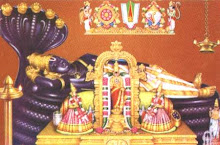This is story-telling at its best. Kashmir, California, Nazi advances, foundations of cold war, love, patriotism, fanaticism, history, geography, mysticism - a heady cocktail of themes that intermingle and intertwine from the first page until the last, Salman Rushdie's work is extraordinary.
I was never a fan of Mr. Rushdie, and never read beyond the first 10 pages of 4 of his earlier books. Shalimar the clown is different. After reading Shalimar, I decided to start reading his other works also, and begun with The Ground Beneath Her Feet.
Lets start with story-telling. Mr. Rusdie provides a crystal ball that revolves ever so sedately like Earth, and projects a vivid, pictureseque tale of his characters, their day-to-day lives and culminates in a crescendo. And, boy, what a fitting end. The high-wire act of Mr.Rushdie, sorry, Shalimar the clown is breathtaking in its lucidity. Only the reader gets thirsty for more.
Next, the characterization. No one in their right mind can accuse Mr. Rushdie of creating characters that are sensitive or romantic or moral. But all of them possess innateness. Innate to their times and environs. Innateness that requires reader to question what is it that makes Shalimar or Boonyi or Pyarelal or Max or even Blood Diamond tick. What makes them go through the day. How do they make their momentous life-altering decisions as easily as wind blows in khelmarg's chinar trees. Why does Max stick with his parents Love ? Why does Boonyi decide not to have a child with Shalimar ? Love ? Free-spiritedness ? Why does Boonyi decide to have a child with Max ? Mean-spiritedness ? Insurance policy for a life wasted on misdirected passion ? Human nature being what it is - and law of nature- whatever it is - presents choices. The choices that the characters make is essentially the genius of Mr. Rushdie.
Next, the plot. I do not like those who take literary license to use, and maybe abuse, historical characters. Mr. Rushdie makes a fine dance with sensibilities of Kashmiris, Muslims, Hindus, Indians (are they all different groups ??, read the book :-)), French, Americans, Germans, Pakistanis, Afghans and every other possible nationality and demographic. Yambarzal's standing up against Bulbul Fakh maybe the high-point for fair minded secularists. Few years later, the destruction of Abdullah Noman and his beloved Pachigam by the Indian Army is no less than what we see in reports that janjaweed do in Darfur. But, wait, the names and places maybe different, but this is real. The name Pachigam may be invented. But, not the happenings. Elasticnagar may very well be Udhampur.
Mr. Rushdie does not moralize, does not even lets his characters muse the politics. Fatalism as a philosophy pervades throughout the narrative. But, the (anti-)climactic juxtapositioning of soliloquies tell us otherwise.
Muskadoon/Pachigam could very well have been Sarayu/Malgudi (R.K.Narayan's timeless creations) but, Mr. Rushdie's intent is far more sinister. He does not hold back the march of time, and the conflagaration that blows up on the reader's face is palpable. For those from the Indian subcontinent just like Mr. Rushdie, not only is this work kindles nostalgia, but mesmerizes and transports and makes them question - why ? And Mr. Rushdie achieved is objective.
Saturday, July 26, 2008
Subscribe to:
Posts (Atom)
